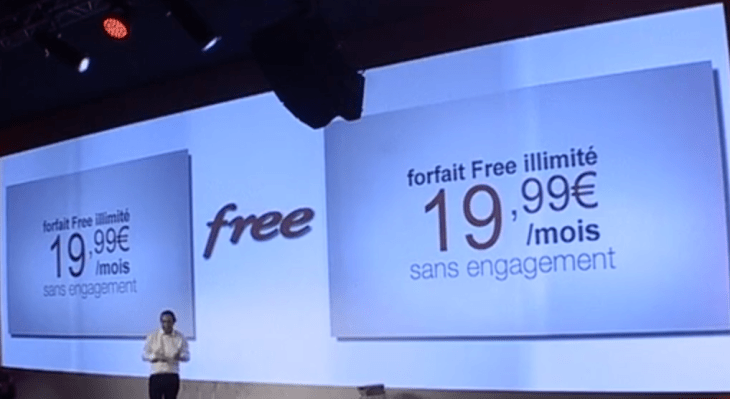Last week, everything was very different in the mobile landscape in France. France’s disruptive telecom company Free was about to make the best strategic move I had ever seen. Yet, it all fell apart today. While it’s a boring industry, the acquisition of SFR is a story of secret agreements and betrayals.
SFR (the second biggest telecom company behind Orange) is about to get acquired by Altice (the parent company of internet provider Numericable) for $16.4 billion in cash (€11.75 billion). Vivendi (the parent company of SFR) will still hold 32 percent of the new entity. It’s a great deal for Vivendi who has been looking into a potential sale for months.
But Numericable wasn’t the only player in this acquisition. You don’t get such a high number without having a second potential acquirer. This is where it gets complicated — Bouygues, the third largest telecom company, also bid for SFR. Because Bouygues and SFR are two large telecom companies already, the deal wouldn’t have gotten clearance from the competitive authority.
Bouygues had to do something to make its offer compelling. According to Le JDD, Bouygues and Free negotiated for three days and nights. They finally reached an agreement late Friday night. Bouygues was about to sell its entire cell network to Free for $2.5 billion (€1.8 billion).
This was the most unexpected scenario. In short, Bouygues was about to acquire SFR, Free was about to acquire Bouygues’ network. This was a much more serious proposition for SFR as Bouygues is a much larger company than Altice. According to the government and many commenters, SFR had no choice but to accept the offer.
As a reminder, Free only started operating in 2012. It is the so-called fourth mobile phone company. It has a small 3G and LTE network and relies a lot on its partnership with Orange. The two companies signed an expensive agreement so that Free can use Orange’s 3G network until 2017 while it is still building its network.
The young and scrappy company was able to provide truly unlimited offers for a fraction of the price. Imagine unlimited talk, unlimited SMS and MMS messages, tethering and, even more important, unlimited data with a speed reduction after 3GB. All of this costs $25 a month (€20). And there is no contract. You can leave whenever you want.
And it worked. In six months, the company was able to attract 3.6 million customers. Even more impressive, the mobile phone activity of the company is now profitable — the company stayed lean.
Yet, competitors had no choice but to lower their plan prices. It’s not as compelling as it used to be to switch to Free as you can get the same plan with another carrier.
Buying Bouygues’ complete network for $2.5 billion was the perfect opportunity to turbo start its network and become independent from Orange. It wouldn’t be just a low cost carrier. And $2.5 billion is very cheap in this industry.
Interestingly, Free and Bouygues can’t stand each other. Founders and CEOs of the two companies have regularly attacked each other through press interviews for years. This is what made the offer unmissable as well: Bouygues was ready to make a huge present to Free so that Bouygues could acquire SFR.
But Free got screwed up. SFR took the offer from Numericable. “I heard that Vivendi decided to sell SFR to Numericable at all costs,” French minister Arnaud Montebourg said to Europe 1. In an email sent to employees, Free board member Cyril Poidatz said that Free will continue with its original strategy of slowly building its own network — it will be a long and expensive process.
